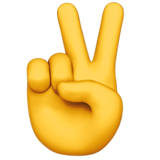Solovyova Marina Viktorovna
I will be glad to hear from you
The coach of adaptive fitness – who is he?

OUR COMPANY
The coach of adaptive fitness – who is he?

A trainer for a child is always an example and, from personal experience, a second mom or dad.
I want to tell about this topic from two sides: red flags for parents choosing physical development specialists for their child and for coaches: an opportunity to calmly assess yourself and fill in the gaps, if it's necessary.
I want to tell about this topic from two sides: red flags for parents choosing physical development specialists for their child and for coaches: an opportunity to calmly assess yourself and fill in the gaps, if it's necessary.
A trainer for a child is always an example and, from personal experience, a second mom or dad.
I want to tell about this topic from two sides: red flags for parents choosing physical development specialists for their child and for coaches: an opportunity to calmly assess yourself and fill in the gaps, if it's necessary.
I want to tell about this topic from two sides: red flags for parents choosing physical development specialists for their child and for coaches: an opportunity to calmly assess yourself and fill in the gaps, if it's necessary.
So, who is a good coach for children with ASD?
1. Knows the basics of anatomy, physiology, biomechanics, kinesiology, sensory integration, psychology and pathopsychology, knows various methods of behavior correction, the theory of FC and ROS.
2. Looks neat.
3. Arrives on time
4. Warns you in advance about the cancellation of the class.
5. Conducts primary diagnosis (questionnaire of the parents + physical condition and fitness) and control tests during work.
6. Records indicators of development dynamics.
7. Discusses the goals and objectives of correctional work with parents.
8. Communicates with parents after class and on the phone.
9. Gives homework.
10. Does not refuse open classes.
11. Makes each child a program based on their individual characteristics, not the same for everyone.
12. Does not shout or use force, does not intimidate the child, is calm in any situation.
13. Selects safe exercises and equipment.
14. Follows a clear lesson structure.
15. Strives to learn new things, periodically improves their skills.
2. Looks neat.
3. Arrives on time
4. Warns you in advance about the cancellation of the class.
5. Conducts primary diagnosis (questionnaire of the parents + physical condition and fitness) and control tests during work.
6. Records indicators of development dynamics.
7. Discusses the goals and objectives of correctional work with parents.
8. Communicates with parents after class and on the phone.
9. Gives homework.
10. Does not refuse open classes.
11. Makes each child a program based on their individual characteristics, not the same for everyone.
12. Does not shout or use force, does not intimidate the child, is calm in any situation.
13. Selects safe exercises and equipment.
14. Follows a clear lesson structure.
15. Strives to learn new things, periodically improves their skills.
1. Knows the basics of anatomy, physiology, biomechanics, kinesiology, sensory integration, psychology and pathopsychology, knows various methods of behavior correction, the theory of FC and ROS.
2. Looks neat.
3. Arrives on time
4. Warns you in advance about the cancellation of the class.
5. Conducts primary diagnosis (questionnaire of the parents + physical condition and fitness) and control tests during work.
6. Records indicators of development dynamics.
7. Discusses the goals and objectives of correctional work with parents.
8. Communicates with parents after class and on the phone.
9. Gives homework.
10. Does not refuse open classes.
11. Makes each child a program based on their individual characteristics, not the same for everyone.
12. Does not shout or use force, does not intimidate the child, is calm in any situation.
13. Selects safe exercises and equipment.
14. Follows a clear lesson structure.
15. Strives to learn new things, periodically improves their skills.
2. Looks neat.
3. Arrives on time
4. Warns you in advance about the cancellation of the class.
5. Conducts primary diagnosis (questionnaire of the parents + physical condition and fitness) and control tests during work.
6. Records indicators of development dynamics.
7. Discusses the goals and objectives of correctional work with parents.
8. Communicates with parents after class and on the phone.
9. Gives homework.
10. Does not refuse open classes.
11. Makes each child a program based on their individual characteristics, not the same for everyone.
12. Does not shout or use force, does not intimidate the child, is calm in any situation.
13. Selects safe exercises and equipment.
14. Follows a clear lesson structure.
15. Strives to learn new things, periodically improves their skills.
It's cool to work well.
You get the most pleasant emotions from work when you give 100%.
You get the most pleasant emotions from work when you give 100%.
Author of article: Solovyova Marina Viktorovna ©

